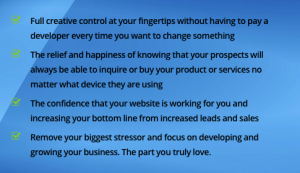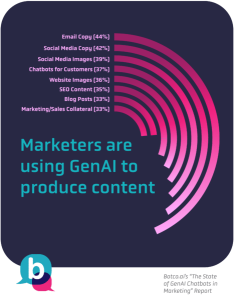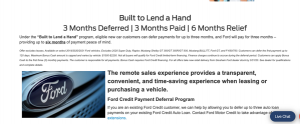— September 2, 2019
If your brand needs help improving its marketing operation, a creative agency can be a powerful partner. From content and KPIs to editorial planning and design, they can help supplement your efforts, guide your strategy, or help you set up your own infrastructure. But finding the right partner isn’t always easy.
There are plenty of creative agencies out there, so how do you choose the one that will work for you? To help you figure it out, we’re sharing our best tips to find and vet an agency that will really help your brand.
6 Tips to Find the Right Creative Agency
Having worked with hundreds of brands over the last decade, we know what roadblocks and hiccups can befall a brand on the hunt for a good agency. Here’s how to ensure the road to the right partner is as smooth as possible.
1) Know what you’re trying to achieve. You don’t have to know exactly what creative idea you want brought to life (that’s often why you’re seeking a creative agency in the first place), but you do need to know your goals before you hire one. The clearer your objectives, the easier it will be for your agency to find the creative solution.
Of course, if you’re soliciting an agency to guide your strategy because you’re not sure what to do, that’s OK. You just don’t want to approach an agency with absolutely no idea what you need.
2) Look for someone in your industry. There are a lot of creative agencies out there, which is why finding one can be intimidating. Luckily, there are also agencies that specialize in particular industries, such as B2B tech. With their intimate knowledge of the landscape, they are well equipped to help you achieve your goals. If you’re not sure where to start, ask your colleagues and friends for recommendations. Otherwise, Google around.
Note: While a local agency is convenient, you might find a better fit in one outside your immediate area. Thanks to the power of tech, collaboration isn’t as challenging as it once was, so don’t let that impede you.
3) Look for demonstrated results. Any agency worth their salt will have a healthy portfolio of not just work but case studies that showcase their results. As you review their work (and client list), you’ll get a sense of their style, skill, and creative approach.
Ideally they’ve worked with people in your industry or executed the type of campaign you’re looking for. However, if you don’t see what you’re looking for but you do like their vibe, reach out to ask for additional examples.
4) Find out if they share their expertise. A good agency is invested in elevating their industry. Thus, they should demonstrate their expertise in other ways, such as blogs, articles, books, contributorships, or features in industry publications.
This willingness to share their expertise—and be an active participant in their field—is always a good indicator that they are knowledgeable and confident in their work.
5) Look at their own content. Consider how they present themselves through their own content. Review their site and social presence to get a sense of their personality, who their team is, what their values are. You want to work with people you click with, naturally, but you also want to make sure you’re working with people who practice what they preach.
Note: If your research doesn’t give you a sense of who they are, that’s a tip-off right there.
6) Interview at least 3 agencies. No matter how good someone’s work is in their portfolio, one of the biggest factors that will influence your success is how well you work together. So take the time to research and talk to potential candidates. You might be in love with one’s illustration style but not jive with their creative approach. Or you might be wowed by their work and their values. You won’t know until you talk to them, so do your research up front.
This brings us to another point: the interview.
What To Ask Your Creative Agency In Your Interview
Whether this is your first time working with an agency or not, it’s always worthwhile to ask direct questions that will give you a sense of who they are and how they work. A few tips to make the vetting process more effective:
- Craft your questions in advance. This isn’t about conducting a prim and proper interview. It can be casual and exploratory, but you want a framework to guide your conversation. Note: You also don’t want to forget to ask anything important. You should also ask unexpected questions. This will give you the opportunity to get past the practiced and memorized answers you might typically get.
- Speak in everyday language. Do what you can to make sure you and the agency rep are speaking the same language. Avoid too many insider industry terms, and clarify what you mean when using broad terms like “campaign” or “strategy.” This will help everyone avoid misconceptions.
- Make sure they’re interviewing you too. Again, you want to cultivate a positive relationship, so your agency should be interested, engaged, and asking you questions as well. (Agencies that care about working with partners who are the right fit will probably be a better fit.)
If you’re not sure what to ask, here are a few standard questions that should get the ball rolling:
- How much experience do you have in my industry?
- Do you have bandwidth to take on my project?
- What is your timeline for projects similar to mine?
- Who will I be working with?
- What does your creative process look like?
- How much work is produced by your staff (vs. outsourced)?
- Can you provide itemized pricing? (Transparency is important here, as scope creep can be a huge problem. You want to know exactly what you’ll be paying for. If they can’t provide that, move on.)
Throughout the process, go with your gut. You want to work with an agency that is friendly, responsive, and eager to build a long-term relationship with you. If you aren’t feeling those vibes from the jump, look for one that does make you feel that way.
Business & Finance Articles on Business 2 Community
(46)






